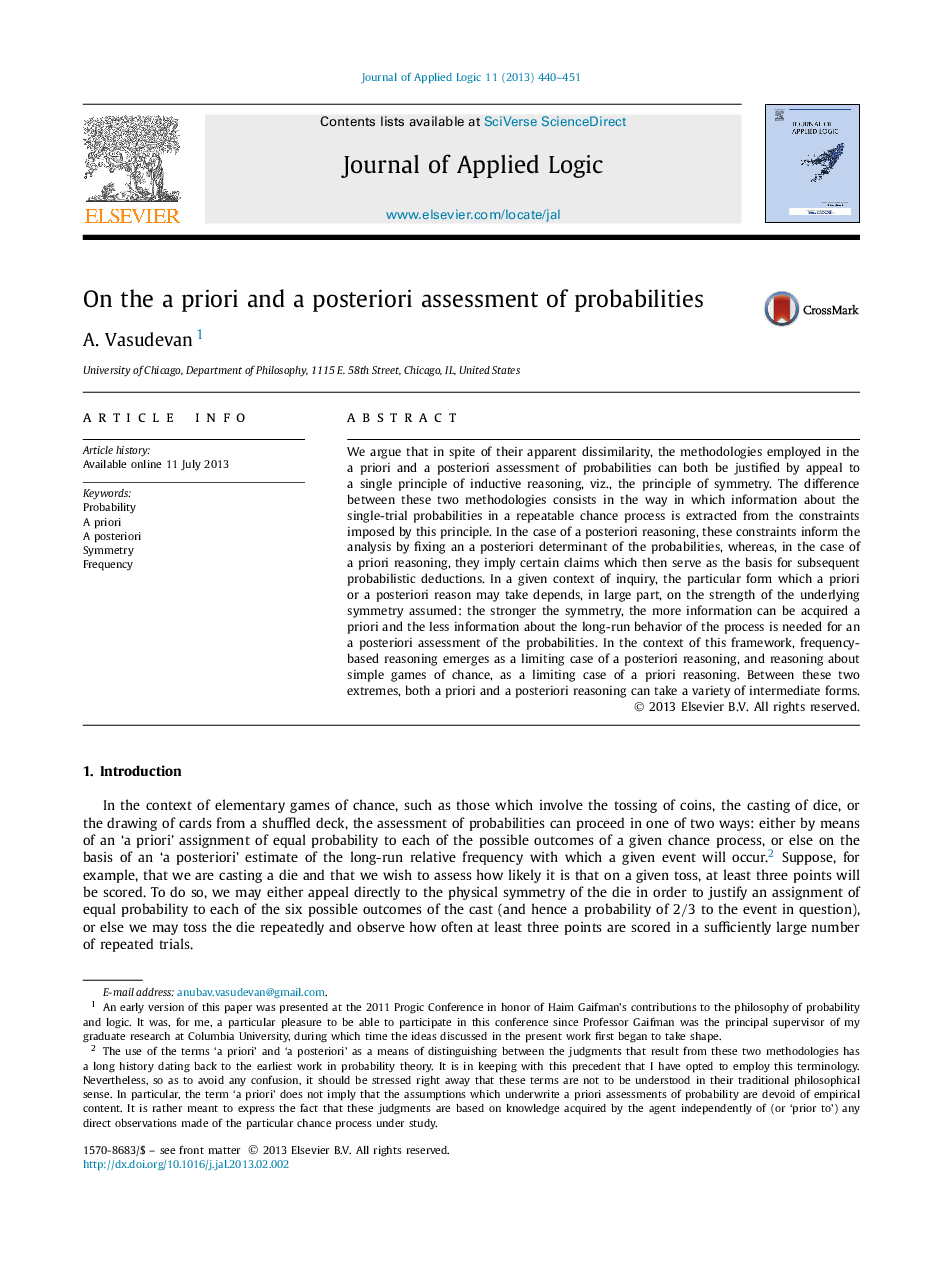| کد مقاله | کد نشریه | سال انتشار | مقاله انگلیسی | نسخه تمام متن |
|---|---|---|---|---|
| 4662998 | 1345218 | 2013 | 12 صفحه PDF | دانلود رایگان |
We argue that in spite of their apparent dissimilarity, the methodologies employed in the a priori and a posteriori assessment of probabilities can both be justified by appeal to a single principle of inductive reasoning, viz., the principle of symmetry. The difference between these two methodologies consists in the way in which information about the single-trial probabilities in a repeatable chance process is extracted from the constraints imposed by this principle. In the case of a posteriori reasoning, these constraints inform the analysis by fixing an a posteriori determinant of the probabilities, whereas, in the case of a priori reasoning, they imply certain claims which then serve as the basis for subsequent probabilistic deductions. In a given context of inquiry, the particular form which a priori or a posteriori reason may take depends, in large part, on the strength of the underlying symmetry assumed: the stronger the symmetry, the more information can be acquired a priori and the less information about the long-run behavior of the process is needed for an a posteriori assessment of the probabilities. In the context of this framework, frequency-based reasoning emerges as a limiting case of a posteriori reasoning, and reasoning about simple games of chance, as a limiting case of a priori reasoning. Between these two extremes, both a priori and a posteriori reasoning can take a variety of intermediate forms.
Journal: Journal of Applied Logic - Volume 11, Issue 4, December 2013, Pages 440–451
